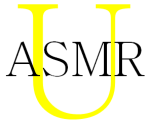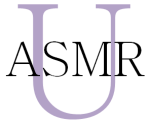 I posted a prior article titled, “Participate in a research study about the role of ASMR in the service industry.”
I posted a prior article titled, “Participate in a research study about the role of ASMR in the service industry.”
Good news, the research study is completed and some results are now available.
The researcher was Vladimir Fedoseev, a graduate student pursuing his MBA at the Varna University of Management in Varna, Bulgaria (a partner university of Cardiff Metropolitan University in Wales).
His dissertation focused on the involvement of ASMR in the service industry and is titled, “Effect of Autonomous Sensory Meridian Response (ASMR) on Service User Experience”
He investigated how ASMR triggers, like soft speech, gentle sounds, careful hand movements, light touch, personal attention, and kind personalities, might effect experiences with hairdressers, doctors, hotel clerks, and others in the service industry.
In this second interview with Vladimir he reviews the details of his methods and shares some results of his research project.
One curious observation I noticed in his results is that gentle sounds, soft speech, and personal attention were the top triggers perceived by participants to cause ASMR in services, but the services with increasing reliance of light touch (like a hairdresser) showed increasing likelihood of stimulating ASMR. This could imply that light touch is a stronger contributor in service-mediated ASMR than the participants realized.
Below are my questions in bold, his replies in italics, and links to learn more about his research project.
Continue reading →
 Emma Palmer-Cooper is a Researcher at the University of Southampton in the UK.
Emma Palmer-Cooper is a Researcher at the University of Southampton in the UK. In this podcast episode, you will hear participants in the
In this podcast episode, you will hear participants in the  I posted a prior article titled, “
I posted a prior article titled, “ Anders Köhler recently graduated from the University of Skövde in Sweden with a Degree of Bachelor of Arts and majored in Media Arts, Aesthetics, and Narration (Game Development – Sound).
Anders Köhler recently graduated from the University of Skövde in Sweden with a Degree of Bachelor of Arts and majored in Media Arts, Aesthetics, and Narration (Game Development – Sound). Beverley Fredborg, James Clark, and Stephen Smith have published another ASMR research study titled, “Mindfulness and ASMR.” The study was published August 7, 2018 in PeerJ.
Beverley Fredborg, James Clark, and Stephen Smith have published another ASMR research study titled, “Mindfulness and ASMR.” The study was published August 7, 2018 in PeerJ. This is the second ASMR research study published by Dr Agnieszka Janik McErlean (Bath Spa University, UK) and Dr Michael Banissy (Goldsmiths, University of London, UK).
This is the second ASMR research study published by Dr Agnieszka Janik McErlean (Bath Spa University, UK) and Dr Michael Banissy (Goldsmiths, University of London, UK).